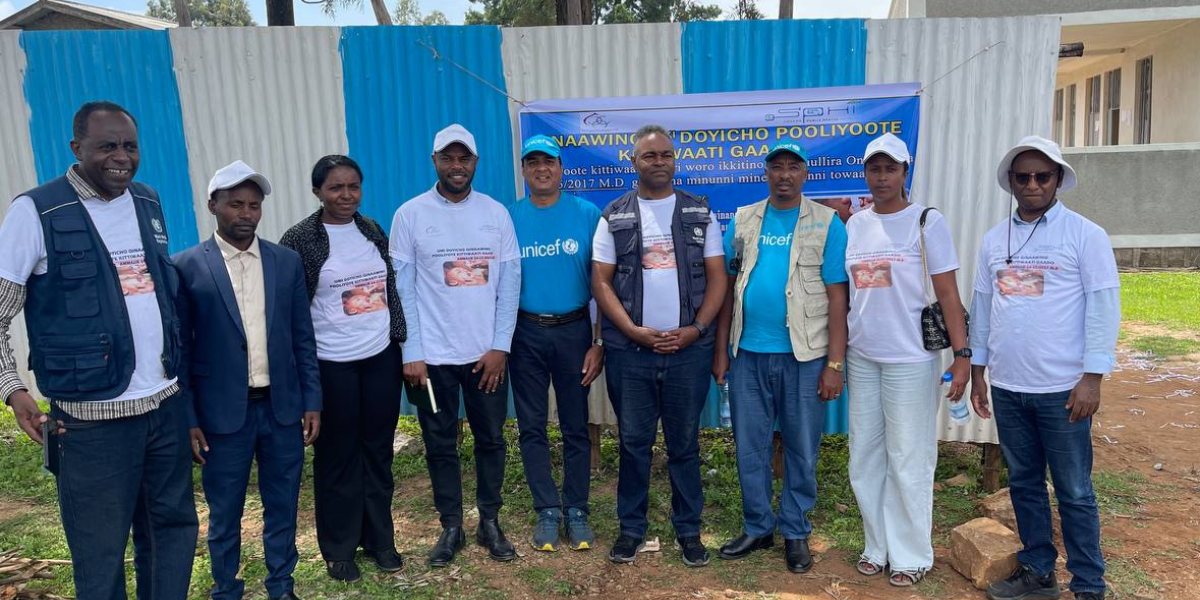Tagged: Global One Health
The Global One Health initiative (GOHi) facilitated preventive maintenance and calibration of five QuantStudio 5 PCR machines to ensure continued reliability and optimal performance of critical PCR systems used in molecular diagnostics.
The Global One Health initiative (GOHi) is working with two hospitals in Ethiopia to strengthen their ability to detect and respond to organisms resistant to many antibiotics, track infectious disease outbreaks and develop treatment and prevention strategies.
Ethiopia has taken a significant leap forward in bolstering its vaccine safety monitoring efforts. In a move aimed at enhancing the nation’s ability to effectively detect, assess, understand and prevent adverse effects of vaccines, the Ethiopian Food and Drug Authority, in collaboration with the Global One Health initiative, organized a high-level national Vaccine Safety Surveillance Review Meeting in late September to assess reporting practices, data quality and systemic gaps.
Public health officials in Ethiopia can rest a little easier now that the new polio vaccine (nOPV2) has been successfully administered to 14.5 million children under the age of five across 10 regions of the country.
Training held in Addis Ababa to improve prevention, detection, control and response to Mpox virus.
Nineteen specialists from Ethiopia’s Food and Drug Authority took part in a Global One Health Summer Institute workshop to learn how to better track and analyze the safety of medicines and vaccines.
A delegation of Ethiopian public higher education research administrators visited The Ohio State University in June and engaged with university research leaders as part of the U.S. Department of State’s International Visitor Leadership Program.
Veterinary public health residents at Ohio State are finding new opportunities to engage in global health work through an ambitious initiative to improve veterinary education in Ethiopia - one that could help shape the future of food systems and public health in the region.
The Ohio State Global One Health LLC has partnered with Ethiopian hospitals and the CDC to enhance microbiology and infection prevention in Ethiopia, significantly improving healthcare infrastructure and antimicrobial resistance surveillance.
The Global One Health initiative (GOHi), in collaboration with the Ethiopian Food and Drug Authority (EFDA), trained 50 members of the regional Vaccine Adverse Events investigation task force across six regions of Ethiopia.
